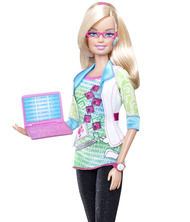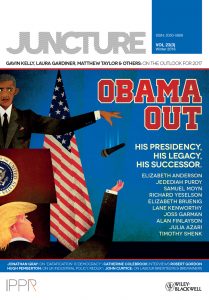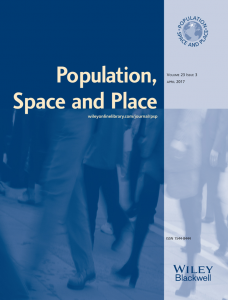wikipedia and the gender neutral voice
 I recently came across a tool that has been around for a couple of years. GenderAnalyzer claims that it can determine the gender of the author of any text that you point it to. It learns to do this by looking at thousands of blogs and the corresponding gender of the author.
I recently came across a tool that has been around for a couple of years. GenderAnalyzer claims that it can determine the gender of the author of any text that you point it to. It learns to do this by looking at thousands of blogs and the corresponding gender of the author.
Give it a try: genderanalyzer.com
As of today, it looks like it has a 63% success rate; not impressive but better than chance. Leaving aside how serious we should take this particular tool, many feel that men and women write differently. These different performances of gender through the creation of text can be documented and predicted. This study concludes,
[…] females use many more pronouns and males use many more noun specifiers. […] female writing exhibits greater usage of features identified by previous researchers as “involved” while male writing exhibits greater usage of features which have been identified as “informational”.
All of this made me think of how Wikipedia strives for a “neutral point of view” in its articles. That is, “without bias.” For fun, I picked some Wikipedia articles and ran them through the GenderAnalyzer to see if they were deemed male, neutral or female. Results indicate a strong male bias in my very small and non-random sample:
- Male: Coffee; bell hooks; oil; love; hip hop; rugby football; philosophy; sex; web 2.0; sexism; feminism; WNBA; Ani DiFranco; men’s health; welding; women’s suffrage.
- Gender neutral: Childbirth; bread; donuts; gravity.
- Female: Quilt; knitting.
Whatever the validity or reliability of GenderAnalyzer, the research cited above begs the question of how Wikipedia would best be organized given different male and female writing styles. Would the ideal Wikipedia contain only the gender neutral voice? Or would it strive for a more even distribution of male and female voices throughout?
Finally, is Wikipedia’s effort to achieve a “neutrality” a male endeavor? Some feminist epistemologists (Gilligan, Harding, etc.) have argued that objectivity and value-disinterestedness are inherently male. Thus, is the neutral voice actually quite gendered? ~nathan



1467-7660/asset/DECH_right.gif?v=1&s=a8dee74c7ae152de95ab4f33ecaa1a00526b2bd2)
1475-6781/asset/JSS.gif?v=1&s=377bb8e0c3d0fcf201f301ded7cf610142072c3e)
Fabulous application of theories of gender difference about the male tendency for a preference for justice over care. Although I spend much of my time writing, and have read studies that allude to the potential for writing to be a gendered space, what you write about above is new and intriguing. I also wonder how texts that are paper based would stack up? The internet was initially a male dominated place (I think), which might still be reflected in today’s content.
Keri
“As of today, it looks like it has a 63% success rate; not impressive but better than chance.”
Doesn’t this assume that there is a 50/50 balance of male to female writing on the internet? I’d say that, to date, it’s still rather more male-centric…
good point! it could simply be programmed to guess male more often. however, when encountering the tool, people might tend to try to feed it both male and female blogs, meaning that the data it is encountering might be more gender neutral than the internet in general. i have no evidence of this at all, though!
Let’s assume for a moment that males and females do, in fact, have different writing styles and that these styles can be discerned from each other. I think something you leave out of this, nathan, is how Wikipedia as a whole functions. When Wikipedia was first getting heavily used, its main audience was IT professionals. This field is very male-dominated. They created the initial Wiki entries that the rest of the world then edited. Even if it was a female editing a male’s entry at that point, it was often so minor an edit that the overall “male presence” would still be in the message, even if a fact was edited or added. Then Wikipedia began to gain popularity, meaning that it became more gender neutral in terms of viewers. Let’s assume that 50/50 girls and men now began editing Wikipedia, though the real numbers are most likely in vast favor of men. The edits that are made are still reviewed by other members as well as a team of specially appointed moderators whose sole function is to go through Wikipedia entries and check them and otherwise edit them. In a male-dominated system, even when a woman manages to get a page approved and retain her own wording, what chance do the majority of pages have in keeping their feminine language style?
I tried a Wikipedia article that I know was written by a woman, and the analyzer tagged it as written by a man. Wikipedia has gender neutral standards.